#Superman Smashes the Klan
Explore tagged Tumblr posts
Text

Superman Smashes The Klan 03 (2020)

2K notes
·
View notes
Text





We are bound together by the future. We all share the same tomorrow.
#clark kent#superman#superman smashes the klan#dc#dc comics#dcedit#comicedit#comicsedit#dcmultiverse#comiceditblog#my edits#queenlance post
615 notes
·
View notes
Text


#bro help#I need to stop reading Reddit in the morning 😭#dc comics#dc#superman smashes the klan#clark kent#superman#found on reddit
382 notes
·
View notes
Text
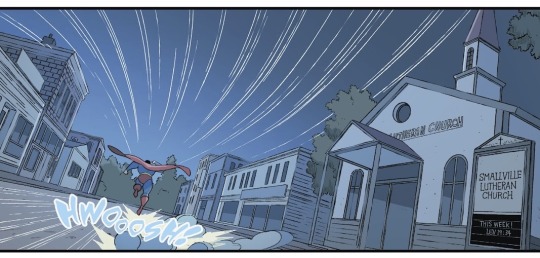
Superman runs to Smallville in Gene Luen Yang’s “Superman Smashes the Klan”
He passes by the Lutheran church that has a verse on the sign

The verse Leviticus 19:34

What does that say?
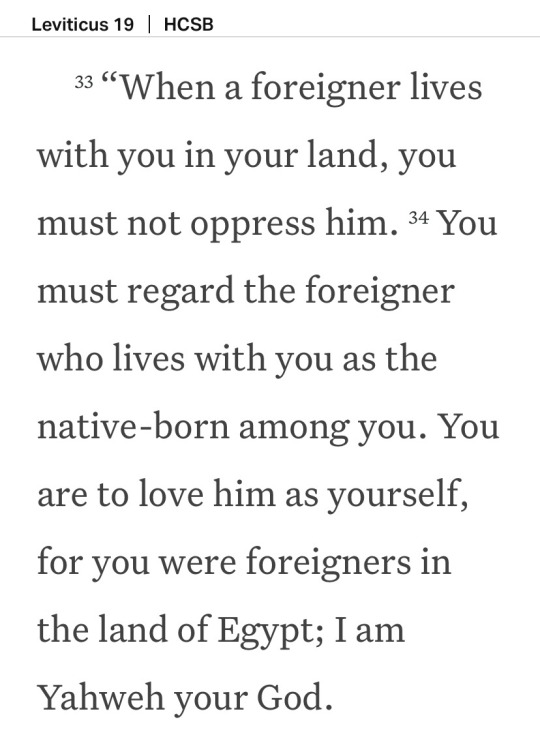
“You must regard the foreigner who lives with you as the native-born among you. You are to love him as yourself, for you were foreigners in the land of Egypt; I am Yahweh your God.”
Leviticus 19:34 HCSB
Nice work there
Remember Superman is the tale of the immigrant and the child raised between two worlds. How is that impossible a tale to tell?
#superman#relevant?#superman smashes the klan#gene luen yang#leviticus#Leviticus 19:34#immigration#immigrants
929 notes
·
View notes
Text

This is such a powerful comic to read especially at this point in time.
#dc#dc comics#batman#batman comics#superman#superman comics#Clark Kent#superman smashes the klan#gene luen yang
46 notes
·
View notes
Text



this is how you know David Corenswet did his fucking homework when preparing for this character.
33 notes
·
View notes
Text
comic review: superman smashes the klan (2019) by gene luen yang
⭑ ⭑ ⭑ ⭑ ⭑ (5/5 stars)
yays: what’s not to love? tight storytelling, a lovely character arc for superman, fantastic supporting characters, nice art, and a bunch of metropolitans helping superman beat up white supremacists! this is a superman comic that i would just as easily put in the hands of a kid as i would my friends or parents. there’s a character and appeal for everyone, and the story is told in three issues that each pack a nice punch. the story revolves around roberta and clark’s parallel journeys in accepting themselves, and it just makes for such a sweet story that feels so true to superman and the “golden age” americana-esque comics. the story is easily digestible but not boring or overdone. in fact, the characterization of clark is so well-intended that it’s like a treat, especially in the wake of more gritty, dark DC comics that aren’t as forgiving to the original character.
nays: if anything, the story is predictable, but i can’t even say that’s a con in good faith because i think the comic works better with this simple premise that focuses more on the heart that the characters bring.
worth a purchase: definitely! this is essential superman and a great comic to have as a standalone recommendation for anyone!

#superman#clark kent#kal el#superman smashes the klan#superman comics#comic books#comics#dc comics#dc universe#dc#dcu#detective comics#lois lane#perry white#daily planet#the daily planet#metropolis#dcau#superman family#superfam#superfamily
32 notes
·
View notes
Text

I finished my latest drawing yesterday! Wanted to draw a bunch of Lois Lanes. It was very fun to draw, loved drawing MAWS Lois the most.
Original stills below the cut.



#my art#screenshot redraw#panel redraw#lois lane#dc#dc comics#dcau#my adventures with superman#maws#superman smashes the klan
23 notes
·
View notes
Text
DC we just got off the heels of a well received golden age inspired 1940s noir batman tv show, this is your chance to announce a standalone animated movie adaptation of Superman Smashes the Klan


While it’s set in 1946, the themes of immigration and xenophobia are SO RELEVANT to today. I literally love this comic so much, it might be my actual number one favorite piece of Superman media, and that is saying a LOT. Highly worth the read, if you want my recommendation!
In conclusion, PLEASE DC MY LIFE WILL BE YOURS.
#this will probably not happen with the new dc universe theyre doing rn and esp the new superman movie about to come out…BUT PLS DC#LITERALLY ON MY HANDS AND KNEES#superman#clark kent#dc#batman: caped crusader#superman smashes the klan#simu’s two cents
57 notes
·
View notes
Text
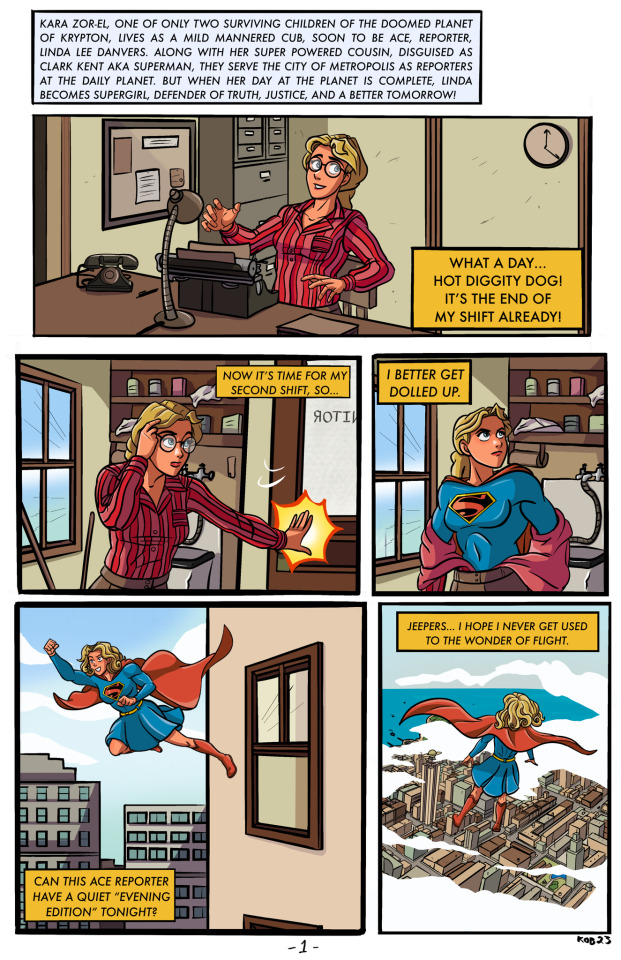
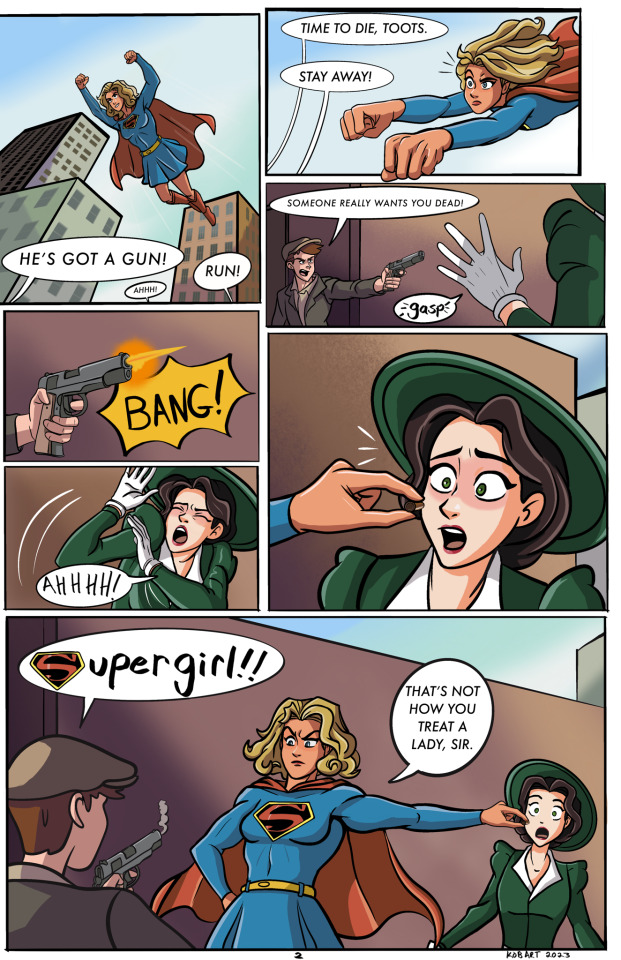


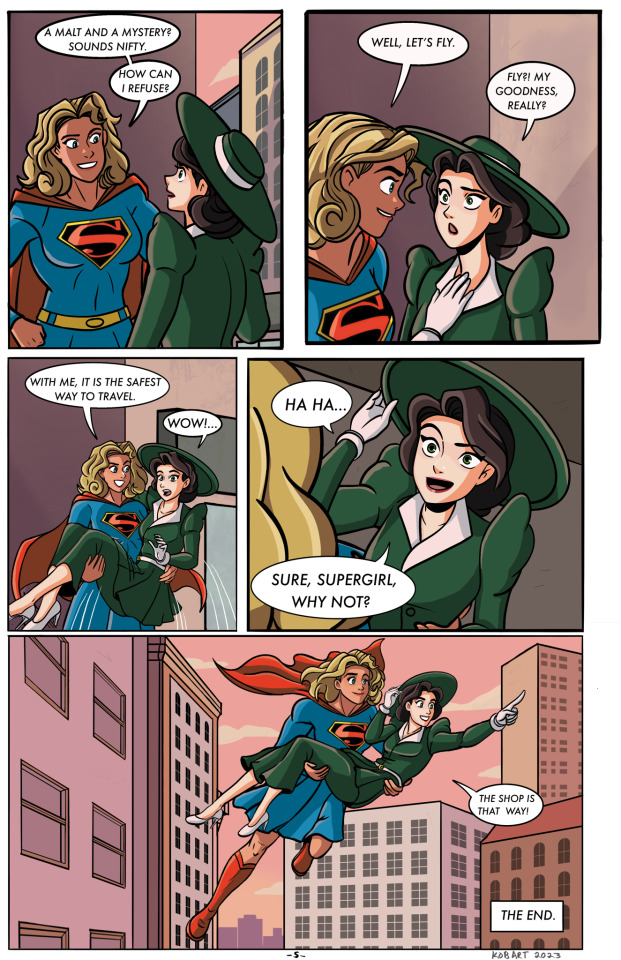
Bwahahahah! It’s done! It’s finally done! This project that has taken every spare minute of my time is complete! Long story short. I love the ‘Superman Smashes The Klan’ DC comic! Enough to try to learn Gurihiru’s art style so that I could insert my favorite DC Power couple into the comic universe because they didn’t exist in it! Seems to be a theme with me lately. Any way,this was a labor of love and a challenge for me. I learned a lot studying Gurihiru’s style and also felt like I had so much more to learn by the end of it. I spent a long time on this so I’d love if any Supercorp fans wanted to have some back and forth on the subject. Also please read the original source material, it’s a great story and you won’t be sorry. I went into more detail on this version of the characters in my character design exercise I did of them previously. But just so you know the characters are kinda a combo of stuff I liked and didn’t like about the earliest incarnations of the characters. Here’s hoping I don’t notice any glaring mistakes after I post….
#gurihiru#supercorp art#superman smashes the klan#superman#supergirl fanart#supercorp#supergirl#supergirl x lena#cw supergirl#supergirl cw#kara x lena#lenaluthor#lena luthor#Lena thorul#kara danvers#lena and kara#kara zor el#karlena#dc comics#dc elseworlds#dc universe#supercorp fanart
693 notes
·
View notes
Text

LOIS PLZZZZZ
superman smashes the klan #02
15 notes
·
View notes
Text
The funniest panel in Superman Smashes the Klan by far

who's up smashing they klan rn
I like to imagine this guy reexamined his entire belief system and turned over a new leaf.
Source: Superman Smashes the Klan #2, story by Gene Luen Yang and art by Gurihiru
14 notes
·
View notes
Text
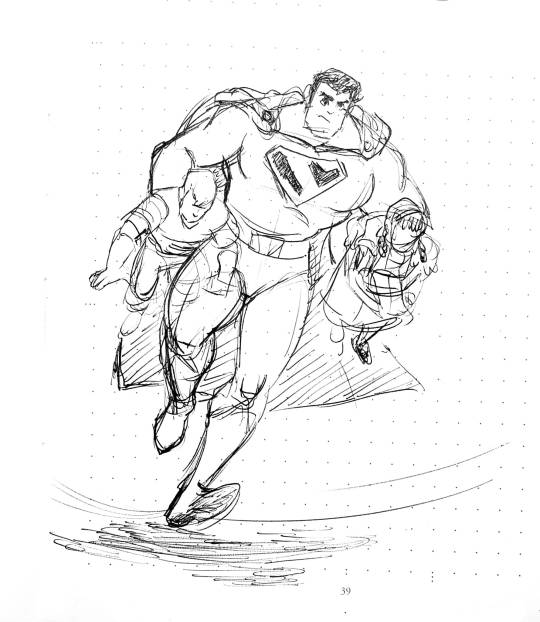

Tried drawing a pose from "Superman smashes the Klan" # 1 from memory
Vs. The actual page the pose was from.
Eh I was close enough 🤣
161 notes
·
View notes
Text
I love Batman, I really do, but Gene Luen Yang's take on Batman tho?

He's 👏🏼 right 👏🏼 and 👏🏼 he 👏🏼 should 👏🏼say 👏🏼 it 👏🏼
112 notes
·
View notes
Text
...when I tell you that this might be my favorite superman story of all time

I'm not joking, as someone who came from a mixed family much like the Lees, I saw discrimination first hand. It was primarily directed towards my mother and though I never delt with the KKK first hand, back in 2016 when...he got elected I saw that she faced a lot of that. As we enter 2024 and another election cycle which means we either get stuck with one group of assholes or an even bigger group of assholes, I think the world needs to remember that characters like superman exists, hell even outside of fiction there are people who will fight tooth and nail for what's right. I read this book wanting an adaptation more similar to my adventures with Superman and not the edgy Christ figure government stooge of the usual ones, and boy this delivered on so many fronts.
It tackled stuff like how symbols of heroes are used by the completely wrong people
(a big example is the punisher skull being used in a lot of back the blue, police brutality imagery[double ironic considering Frank Castle fucking hates the police])
They treat superman's arc as an immigrant which I think is a fantastic choice and one I also use for man of tomorrow
AND GOD FUCKING DAMN IT DO I JUST LOVE THE PEOPLE'S HERO, MAN OF TOMORROW SUPERMAN
This book isn't just good, it's fucking fantastic. It gets the character right so well and I'm here for it.
28 notes
·
View notes
Text
I want more superhero movies that aren’t set in the present (like Wonder Woman and Captain America: The First Avenger).
I want a live-action adaptation of DC: The New Frontier that deals with the Cold War’s effect on people’s view of superheroes (and heroes’ views of themselves) in the 1950s.
I want a Justice League International movie set in the late 80s. Give me the big hair, the great music, and the messages about nuclear disarmament.
I want a Fantastic Four movie that’s grounded in the space race of the early 60s. Give me all the Cold War undertones.
I want a Superman Smashes the Klan adaptation that directly addresses racism and xenophobia in post-WWII America while also paying tribute to the evolution and legacy of Superman’s character.
I want a John Constantine movie that navigates his identity as a bisexual man during the AIDS crisis of the 80s and 90s.
I want a Cold War era spy thriller about Black Widow where she defects from the Soviets to the U.S.
Give me more period superhero films.
#superheroes#dc the new frontier#fantastic four#john constantine#justice league international#jli#superman#superman smashes the klan#black widow#dc#dcu#dc comics#marvel
81 notes
·
View notes